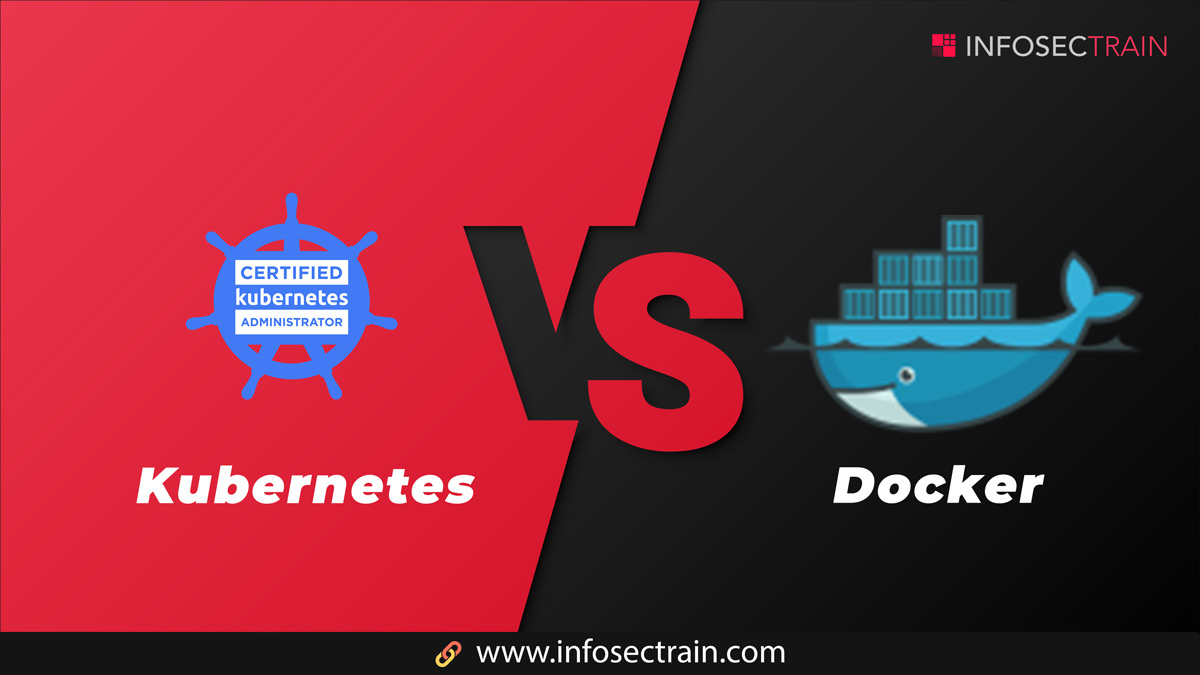Difference between Kubernetes and Docker: Kubernetes vs Docker

The arrival of containers resulted in prominent disruptions in the field of application development recently. Many tools have proven to be exceptionally productive for container creation, deployment and management. Therefore, the debate on Kubernetes vs Docker has been one of the key pointers in the cloud computing world.
However, the lack of clarity regarding the exact differences between them creates many ambiguities. So, let us find out the difference between Kubernetes and Docker in the following discussion.
What is Kubernetes, and What is Docker?
Before diving into the Kubernetes vs Docker debate, let us present the basic definitions of both tools. Kubernetes is the open-source container management platform developed on the Google platform. It can help in the management of containerized applications across various types of physical, cloud and virtual environments.
The other player in the Docker vs Kubernetes debate, i.e. Docker is an open-source platform for containerization. Docker can help in automating application development with the help of portable and lightweight containers.
Now, let us outline the difference between Docker and Kubernetes in different aspects as follows.
- Setup and Installation
The first point of comparison in the Kubernetes vs Docker debate refers to setup and installation. In the case of Kubernetes, you would need many manual steps for setting up the Kubernetes Master and worker nodes as well as related components in a node cluster. On the other hand, installation of Docker involves just one-liner command on Linux platforms such as Ubuntu, CentOS and Debian.
- Working in Multiple Systems
Kubernetes works on the application level and not the hardware level. It can support various workloads such as stateless, data-processing and stateful workloads. Kubernetes can run over Docker although with the need for command-line interface specifications for enabling both to access user data through the API.
On the other hand, Docker is available in Community and Enterprise editions. Docker gains advantage in this section of Kubernetes vs Docker comparison. Docker Community provides effective enterprise-class support along with private support channels. In addition, Docker Community and Enterprise come with Docker Swarm Mode for effective working with multiple systems.
- Logging and Monitoring
The next important aspect in Kubernetes vs Docker comparison refers to logging and monitoring. Kubernetes does not provide any native storage solution for log data. So, you have to integrate logging solutions in the Kubernetes cluster.
On the other hand, Docker is a preferable choice due to the availability of logging driver plugins that provide exceptional logging capabilities. Docker provides various logging mechanisms to ensure that you can extract information from different operational services and containers with the logging drivers.
- Capacity
The size aspect also plays a critical role in establishing the comparison of Kubernetes vs Docker. Kubernetes supports clusters with a maximum of 5000 nodes with certain criteria. The maximum number of nodes must be 5000, the total pods must be less than 150000, and the total number of containers must be less than 300000.
In addition, you should not have more than 100 pods for every node. Docker Swarm provides exceptional container orchestration capabilities for a maximum of 30,000 containers and 1000 nodes. Therefore, Kubernetes definitely has an advantage in terms of workload capacity.
Quick Look at Differences: Kubernetes vs Docker
Now, let us take a look at some of the other differences between Kubernetes and Docker to strengthen our discussion.
- Docker provides automatic load balancing while you have to configure your load balancing settings manually with Kubernetes.
- Docker allows sharing of storage volumes among multiple containers in a single pod. On the other hand, Kubernetes can support the sharing of storage volumes with other containers.
- The optimization of Docker aligns with the operations of a single large cluster. On the contrary, the optimization of Kubernetes aims for multiple smaller clusters of SDLC.
- Kubernetes depicts limited fault tolerance, while Docker has a higher fault tolerance ratio.
- Docker exhibits limited customizability and extensiveness, while Kubernetes is highly comprehensive and provides feasible opportunities for customization.
Are Kubernetes and Docker Really Different?
The differences in the Kubernetes vs Docker comparison mentioned above clearly showcase that Docker is a better alternative. However, the point is ‘are we asking the right question?’ and think about alternative options for Kubernetes without Docker or vice-versa. As a matter of fact, it is highly important for us to consider the potential of a symbiotic relationship between Kubernetes and Docker.
Kubernetes provides the functionalities for orchestration and management of all container resources over a single control plane. It provides exceptional support for networking, security, scaling and load balancing across all Kubernetes nodes running containers. In addition, it also includes in-built isolation mechanisms such as namespaces that help in grouping container resources according to staging environments, access permission and many other factors.
Most interestingly, Kubernetes and Docker get along well, and you can use them together for beneficial outcomes. You can improve the resilience of your infrastructure and availability of applications. So, rethink your assumptions and reflect on the Kubernetes and Docker debate once again!









 1800-843-7890 (India)
1800-843-7890 (India)